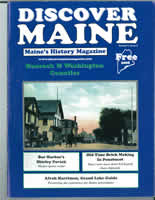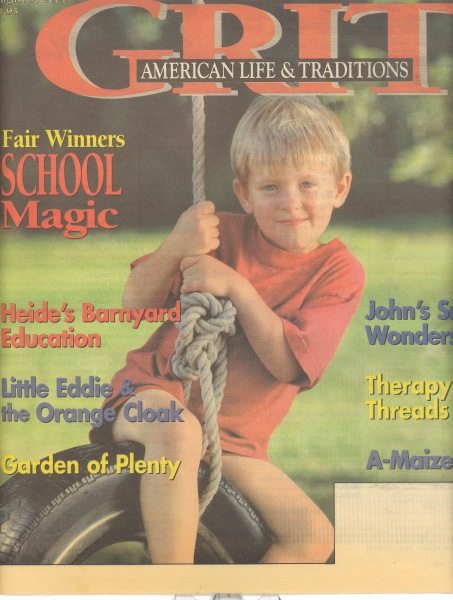HELLO SOMEBODY!
Reverend Alfreddie Johnson–Carrying on King’s Work
By Susan Stroh
Say you were a gang member in South Central, Los Angeles, and you didn’t think you would be alive in six months. Why would you want to go to school, get a job or live an honest life? Let’s say your parole officer made you go see some minister at a literacy center. You might show up, but you sure as hell wouldn’t let anybody get through to you. Not unless you were talking with Reverend Alfreddie Johnson.
You know this is gonna be the same old shit, but when Reverend Johnson talks to you, something happens. What’s going on here? You wonder. You don’t know nothing about this man and you could care less, but he seems to know all about you. How you go to a run-down school, how you live in a broken down home where nothing you do is right, and how when you leave your house, if anyone looks you in the eye, that means they’re planning on taking you out.
Reverend Johnson looks down at the floor when he talks to you, so for the moment, he’s cool. As he talks, he continues to paint this picture of you. You nod, yeah, okay. Then he stops talking and somehow you continue the picture. It’s crazy—you’re telling him things you’ve never told nobody, not even your tightest brothers. Out of the corner of your eye you see him nod. Then you think, wait, maybe you shouldn’t be sayin’ these things. Then there’s this big old silence. Quietly, he says he knows how you feel, that you are right to feel that way. Something loosens up in you, you find yourself sneaking a look at him to see if he’s for real. Sure he’s in a suit and tie, kind of medium height, medium age, but there’s something about his voice…
When he asks you to come back the next day to begin to “get yourself back, get your freedom back,” you can’t even think of a reason to say no. He tells you that his definition of freedom is “the ability to make happen what you want to make happen in present time.” Crazy, right? For a fraction of a second your eyes meet his, but it’s okay. He’s made you feel like a somebody.
Here’s another scenario. Let’s say you were an outsider to the community, like I am, and you got the opportunity to interview Reverend Johnson, his staff and volunteer tutors. You would know that Reverend Johnson, who prefers to be called Rev, is a somebody too. Amongst his many skills as pastor, literacy advocate, educator and speaker, is his extraordinary gift as a communicator, which makes him successful at all his jobs. And if, like me, you decided to attend one of Rev’s Sunday services, you would hear something you haven’t heard anywhere else. “Hello somebody” are words he sprinkles through his sermons. They’ve become a kind of trademark for Rev. He will make a really important point, then look you in the eye and say, “Hello somebody!” You just have to smile at how he hits the word somebody with vigor. Once, when his work took him to South Africa, he was walking through the airport and someone recognized him and yelled from across the lobby, “Hello somebody”!
But how did Rev Johnson become a “somebody” who was so obviously cut out to lead? Born in Montgomery, Alabama at the height of the civil rights movement, Alfreddie, as a boy, always had an affinity for spiritual truth. From the time he was two years old he regularly attended church. A bit later on, he was discovered to be a child prodigy of religion, surprising people with how much of the adult sermons he understood and could discuss. He now laughingly confesses that a big reason he went to church was to make sure the minister told the truth! (He said that sometimes he knew they were faking it.) At the same time he insists that he never wanted to become a minister, even though, over the years, others thought he should.
When Rev was seven years old, he was seated in front of his mother’s television as the shocking news of Dr. Martin Luther King Junior’s assassination blared forth. He made the decision, right then, to carry on Dr. King’s work. The decision might have been inspired and easily made, but discovering how to do that work was not without difficulties and a few detours.
For example, teenager Alfreddie thought the way to influence the world would be as an athlete, and he did have extraordinary skill at sports. He laughs about it now, “I was the coach’s secret weapon in football, he would put me into the game when he wanted to score, otherwise I was on the bench.” In his sophomore year in high school, he suffered a severe injury, which put a damper on his sports career.
After college, thinking that economics might be the route to world betterment, Rev entered the business world. But his work in that sector wasn’t soul satisfying, and too slow for what he wanted to achieve, which he decided must include community service. He quit business, and moved fifteen gang members into his house and managed twenty-two kids outside of the home. His group was called Genesys. It was a tough-love program requiring each person to follow ten steps everyday in order to avoid any further crime and violence in their futures. For three years, Rev expanded this program creating Genesys chapters all over the world.
This was a great start, but it wasn’t until 1992, in the midst of the Los Angeles riots, that Rev really gathered momentum in his mission to carry on Dr. King’s work. He attended a seminar put on by an educational consulting group called Applied Scholastics. It was then that Rev realized to what field he was being called: “Dr. King had died before he could take on the next step in the process of regaining rights and freedoms and responsibilities: education.
“I wrote an essay entitled Letter from Heaven in which I outlined what I thought Dr. Martin Luther King Junior’s messages would be now. I thought that Dr. King would say that ‘The greatest terrorism in America is public education, destroying the lives of young people. Democracy is in jeopardy because of the low educational and literacy levels of the American population.’
“Dr. King and men like him,” Reverend Johnson continues, “removed the legal chains of oppression and suppression by using the constitution, a legal document, to free people of color and give them equal rights. After Dr. King’s death we should have evolved to education, but we didn’t, we pursued economic development instead. The enemies of man think they can bring economic progress and prosperity as tools for freedom, but that is out of sequence. When you give money to an illiterate or ignorant people, it’s like putting atomic fusion in a light bulb. You get chaos, confusion and criminality. There’s a dumbing down of the populace today, so the people cannot enforce or make happen the rights and the laws of the constitution. Our rights are being violated because we’re ignorant and illiterate and cannot interpret. So our people lose power and rights that are found within the constitution because they cannot learn and then apply its principles–the principles of a democratic republic.
“Opponents to real freedom would rather have a rich black person with no education than an educated person who could hold the government accountable.
Edgar Hoover and people like him who were deeply frightened by leaders like Dr. King did everything possible to tempt the black community into getting rich. The thought process goes like this: it’s okay for a black man to play sports, entertain or make people laugh, but as Hoover said, ‘There will never be another Martin Luther King unless we make him.’ “And so today,” Rev continues, “we have illiterate, extremely wealthy black athletes and entertainers who haven’t a clue about responsibility, ethics and accountability. It’s tragic.
“Further, there are so called “poverty pimps”–a slang term referring to people who use those in perpetual poverty to make money for personal gain. They promote a sense of false entitlement and victim-hood to inner city citizens. ‘Look what the white devil has done to you.’ These poverty pimps need people to remain poor in order to make money. They often extort money from politicians, from the government and private industry with no intention to help the poor. You know them by their lack of real solutions or proven track records.”
Rev, in the early 1990’s was urgently looking for tools and means to get people in his community to shun the poverty pimps, to see themselves with self-respect, to reach for self-knowledge and to discover that they can and should be in the driver’s seat. Consequently, when the Applied Scholastic educators came into Compton, California in 1992, introducing Rev to their study technology and offering to tutor the kids in his community, Reverend Johnson was keenly interested in their solutions. Rev knew intuitively that an educator, to be successful, had to help a student find his/her own purpose for studying, a purpose which aligned with something that individual really wanted, not what someone else wanted for him. The study skills technology that Rev embraced did that and much more. “The results of their tutoring were phenomenal,” says Rev.
The educational deliverance began in earnest when Reverend Johnson founded a literacy center in Compton, California where people could come and remove all barriers to study and learning. Rev called his center, The World Literacy Crusade. Youth from the community arrived, learned to study, studied with purpose and enjoyment, and then became tutors themselves—all improving their community’s literacy levels.
Reverend Johnson knows that whenever you start something new and expansive, there are always those who become antagonistic to your purposes and projects. Rev says, “In every freedom fight, there are enemies, and one needs to learn to deal with them effectively. If you resist them you end up in a stalemate—where nobody moves forward. In other words, when you resist, resent or get disgusted with someone who is opposing you, you end up asserting you are right and they are wrong, thus creating an impasse.”
Rev disarms opponents and resistive gang members, by listening; getting exactly where the person is coming from, and communicating his understanding of their viewpoints, feelings and situations. He isn’t afraid to be them, to take their point of view. “You have to be very real, never be the slightest bit condescending, and you don’t try to change how the person feels.
“Most of the kids who walk in through our doors have developed a philosophy of despair. But once they are at the center because they want to be there, we give them a remedy for their despair and despondence. First, we get them to tell us fifteen things they want to have by the time they turn thirty. Then, of those fifteen, we get them to tell us the most important five items on that list. Finally we zero in on the most important thing that kid wants. Next we have them build that dream, demonstrate it in clay, showing how they are going to get it and what steps they need to follow to get there. This practical demonstration will show them the link between quality of life and learning. And finally they have their own very personal purpose for learning. And nobody can take that away from them.
“Ultimately, to handle their despair you want to help people to find out who they really are, help them to know they can cause things to happen, can cause change and bring about a future that is sane and prosperous. Then they will be able to embrace economic, political and all the other freedoms.”
Rev saw that these students’ parents and other adults in the community needed guidance and answers in order to gain the kind of individual freedom they desired. It was because of this need that Rev finally answered the call to lead a church. As founder and head preacher of The True Faith Christian Center, he delivers Sunday sermons remarkable in their clarity and relevance. They are clear because he defines words and concepts in biblical references as he goes, relevant because Rev uses the teachings of Jesus to elucidate current challenges people have in pursuing not only individual and spiritual freedom, but also economic and political freedom.
Rev preaches what he practices. And that can be summed up in his individual formula for freedom. (See Sidebar #1) Rev preaches, “You achieve individual freedom by observing, studying, learning, understanding and applying what you’ve learned. You gain freedom by discovering and uncovering thoughts and ideas that work in present time. Freedom begins with knowing who you are, by assuming your true identity. As teachers and community leaders, you have to get people to recognize and to increase what’s right in their lives. You get a person to understand that you serve God by serving man, so you give and help and give of yourself some more.
“As a preacher I especially want people to understand what Jesus was really saying at the cross. Within that story is a powerful key to gaining freedom for self and others. Jesus said on the cross, ‘The father and I are one.’ So you see, Jesus saw himself as God. At the end of his life, Jesus commanded us, ‘let the mind of God be in you.’ So the truth is, a person is God, not a body, not a mind, but an eternal spirit, that’s the message of the cross. And when you accept that truth, it follows that you have to take a lot of responsibility.”
In addition to his teaching and preaching, Rev is aggressively addressing the lack of positive role models for inner city kids. When The Urban League reported that for every black male who graduates from college, there are one hundred black men in jail, Rev leapt into action. He gathered some friends like R & B music icon Isaac Hayes, hip-hop legend Doug E. Fresh and TV star Haywood Nelson (Dwayne Wayne), and they became part of his executive board for a group Rev recently founded entitled Men Who Care. Other board members include Chaka Khan, MC Lyte, Russel Simmons, Dr. Ben Chavis, Tommy Davidson and many other concerned citizens.
Because inner city kids lack positive role models, they gravitate towards negative influences such as those rappers who promote sex, drugs, and hate for the establishment. Men Who Care is a group intent on furnishing youth with good role models.
The solution the group has developed involves using the gravitational pull kids feel towards music to good purpose. Men Who Care proposes an incentive program whereby pop artists who care about the future of these kids and whose lyrics reflect responsible viewpoints give kids from 12-18 years old free tickets to musical concerts. The free concerts will be a graduation gift to students who complete two days’ worth of workshops and seminars. “These educational empowerment camps will inspire urban youth to choose education as a way to create their own prosperous futures,” Rev says.
Reverend Johnson recently made two trips to promote and forward his causes. The first to Las Vegas to honor Mr. Rod Paige, the Secretary of the United States Department of Education, with the “Outstanding Public Servant” award. This award was for the Secretary’s work through the No Child Left Behind initiative, a potent presidential project promoting quality education for every American child. The next trip was to Washington, D.C. to talk to legislators about Men Who Care which the group describes as “a campaign of educators, media, and entertainers ushering inner-city youth to higher education. (See Sidebar #2 below.)
Rev’s journey: a discovery of finding out how to further Dr. King’s work, has taken him from the streets to the classroom to the pulpit, and now all the way to our nation’s capital. In his public life, Rev has evolved into a statesman and freedom fighter. His character, by his own admission, is a gumbo of leaders, statesmen, and humanitarians that he admires: Dr. Martin Luther King Junior, Nelson Mandela, JFK, Mary Baker Eddy, Thomas Jefferson, L. Ron Hubbard, Rev. Leon Sullivan, George Washington Carver, Mahatma Gandhi, Magic Johnson and MC Lyte. With these as his role models, it’s predictable that Rev will find himself more and more in the public eye.
Despite the seriousness and scope of the problems he takes on, Rev is always ready to celebrate whatever freedom has been won, individual by individual. He loves to laugh, dance, eat and talk. He is a great admirer of beauty in all people, and because of that he magically brings out the best in his parishioners, students, colleagues and friends. Because Rev sees you as a somebody, you’re a somebody too!
SIDEBAR:
“Freedom is the ability to make happen what you want to make happen in present time.” RAJ
Rev’s Formula for Freedom:
Look and observe
- Study: to focus one’s attention or to fix one’s attention so as to learn.
- Learn: to find out what is true, what is false, what works, what doesn’t work, what is effective and not effective, what is productive and not productive.
- Understand so as to gain wisdom.
- Apply what you learned.






